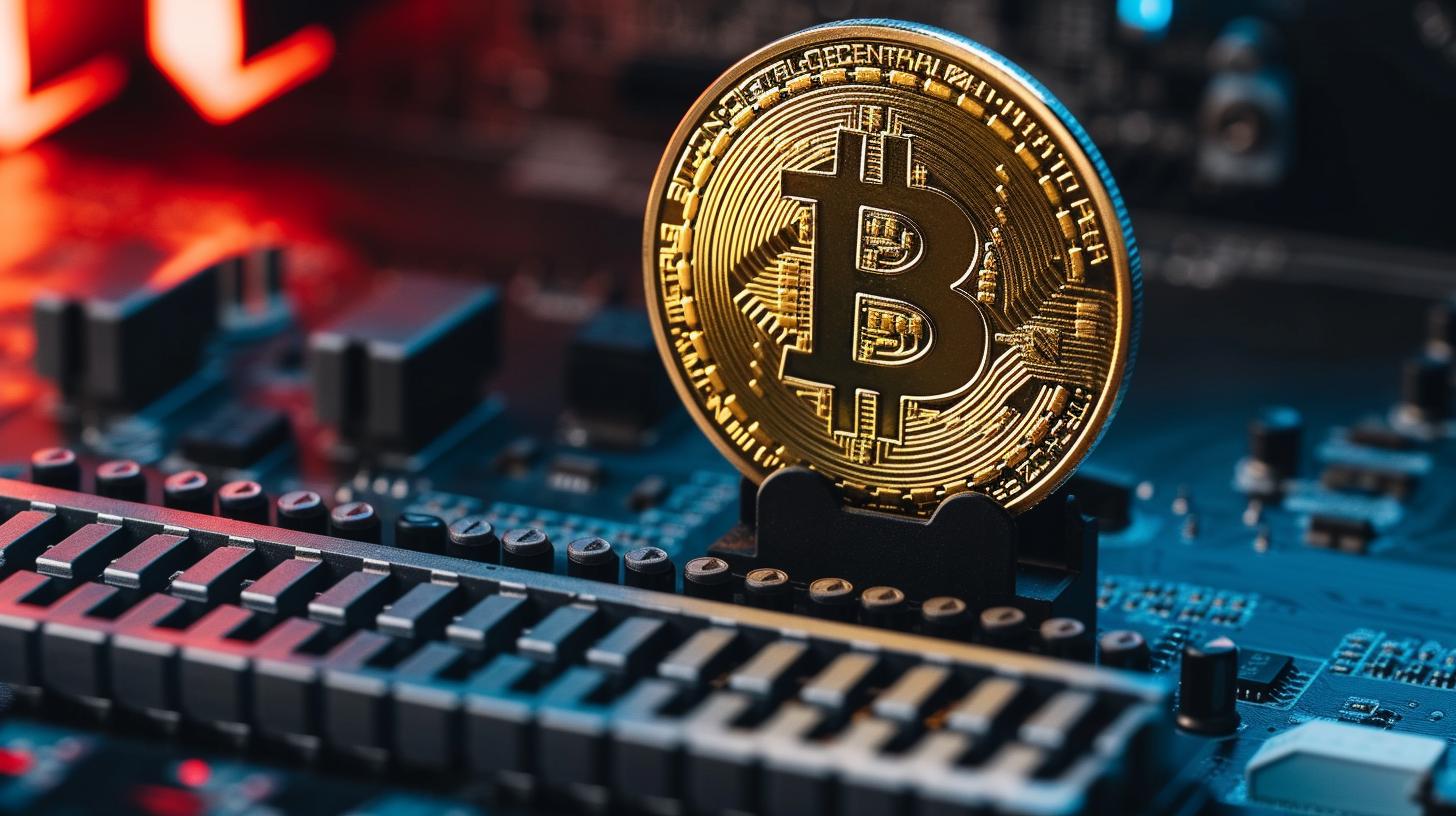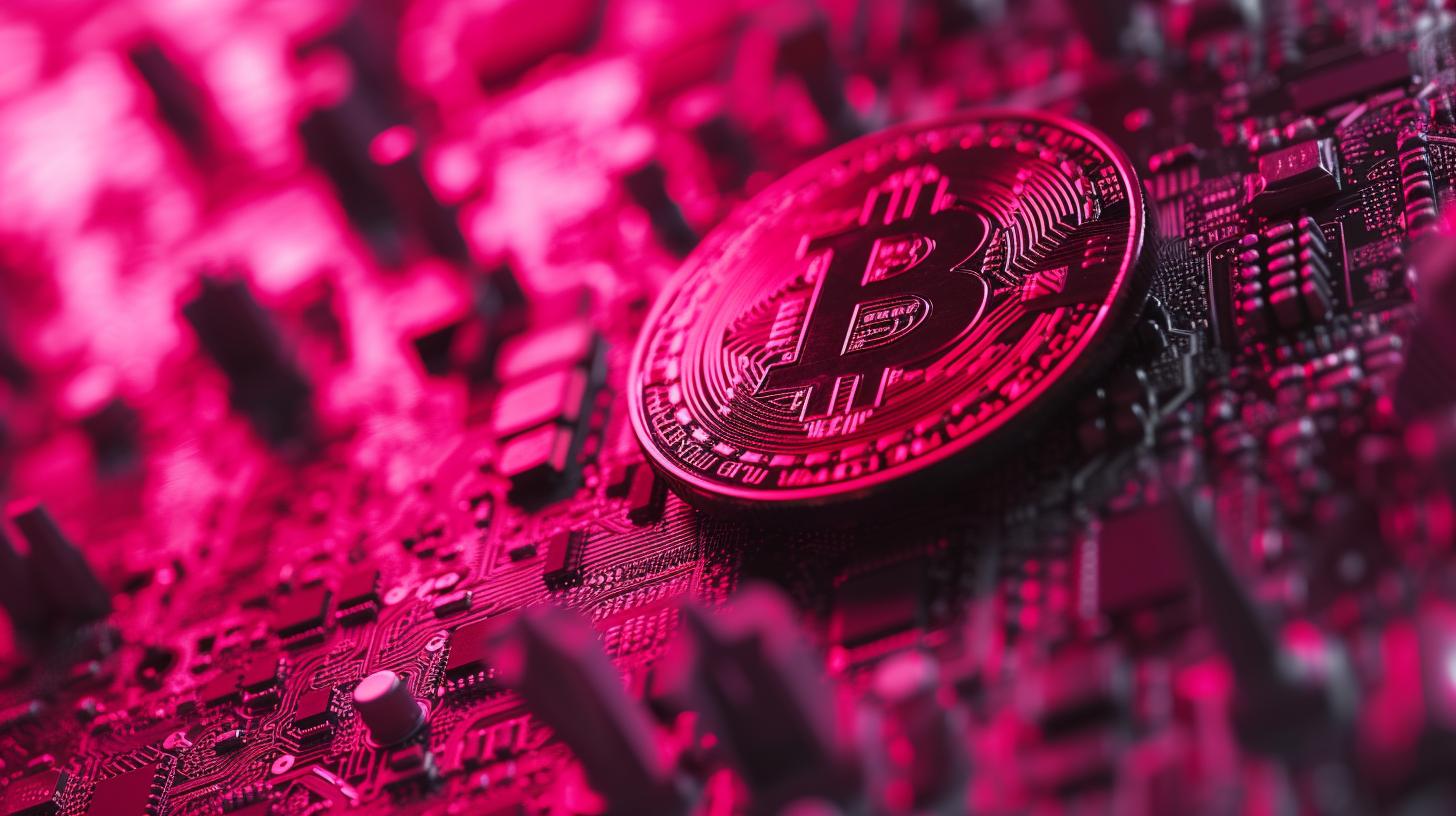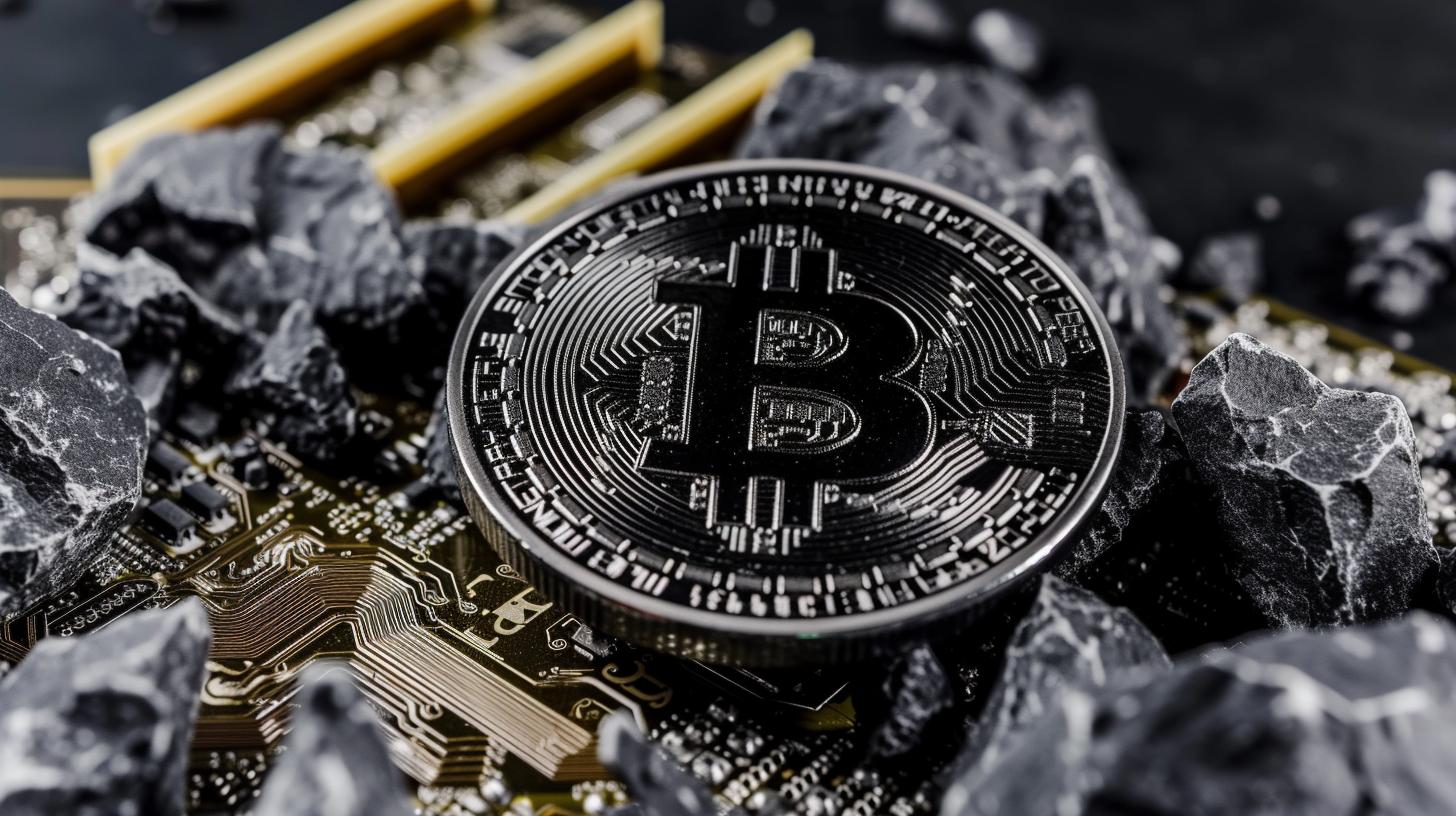
Can you mine crypto on a virtual pc? As the popularity of cryptocurrency continues to grow, more people are looking for ways to earn it. One such method is through cryptocurrency mining, which involves using computer hardware to solve complex mathematical problems in exchange for a reward in the form of digital currency. This introductory section will explore what cryptocurrency mining is and why it has become a popular way to earn money in today’s digital economy.
Cryptocurrency mining has gained widespread attention due to the potential for substantial financial rewards. With the value of cryptocurrencies such as Bitcoin and Ethereum reaching new heights, many individuals and businesses are eager to participate in the mining process as a means of generating income. However, as the demand for cryptocurrencies increases, so does the competition among miners, leading to the need for more powerful and efficient hardware to remain profitable in this industry.
In this section, we will also delve into what a virtual PC is and how it differs from a physical PC. As we explore the hardware and software requirements for cryptocurrency mining, we will address whether a virtual PC can meet these needs or if there are limitations that could impact its effectiveness as a mining tool.
Furthermore, we will examine the performance considerations and security concerns associated with using a virtual PC for cryptocurrency mining, providing valuable insights for those considering this approach to earning digital currency.
Virtual PC
A virtual PC, also known as a virtual machine (VM), is a software-based emulation of a physical computer. It enables users to run multiple operating systems on a single physical machine, allowing for greater flexibility and efficiency. Unlike a physical PC, which consists of tangible hardware components such as a CPU, memory, and storage devices, a virtual PC utilizes virtualized resources provided by the host system.
Virtual PCs are often used for testing new software, running legacy applications, or hosting multiple server environments on one physical server. They can be created and managed using virtualization software such as VMware, VirtualBox, or Hyper-V. These platforms allow users to allocate specific amounts of CPU power, memory, and storage to the virtual PC, enabling it to function as if it were a standalone physical system.
When it comes to cryptocurrency mining, the use of a virtual PC can be advantageous in certain scenarios. However, there are limitations to consider. While it is possible to mine some cryptocurrencies on a virtual PC with limited success, the performance may not be sufficient for more demanding mining operations. Additionally, security concerns must be taken into account when using a virtual PC for mining due to the potential vulnerabilities associated with running mining software within this environment.
| Virtual PC Considerations | Data |
|---|---|
| Flexibility | High – Can run multiple operating systems on single machine |
| Performance | Limited – Not suitable for demanding mining operations |
| Security | Potential vulnerabilities due to shared resources |
Hardware Requirements
Cryptocurrency mining, the process of validating transactions on a blockchain network in exchange for newly created coins, has become an increasingly popular way for individuals to earn money. As the value of cryptocurrencies such as Bitcoin and Ethereum continues to rise, more people are looking to get involved in mining. However, one question that often arises is whether it’s possible to mine cryptocurrency on a virtual PC.
A virtual PC, also known as a virtual machine, is an emulation of a physical computer system that operates within a software environment. Unlike a physical PC, which has its own dedicated hardware components, a virtual PC shares resources with the host machine on which it runs. This can lead to limitations in terms of processing power and other hardware specifications.
When it comes to cryptocurrency mining, the hardware requirements are crucial for achieving optimal results. Typically, miners use powerful graphics processing units (GPUs) or application-specific integrated circuits (ASICs) to perform the complex calculations required for mining. Additionally, a high-speed internet connection and ample storage space are also essential for storing the blockchain data.
Below are the necessary hardware requirements for cryptocurrency mining:
- High-performance GPU or ASIC
- Ample system memory (RAM)
- Fast and reliable internet connection
- Sufficient storage space
Given these hardware requirements, it becomes apparent that using a virtual PC for cryptocurrency mining may not be ideal. While it’s technically possible to mine using a virtual machine, the performance limitations may hinder the mining process and result in lower profitability.
Additionally, resource sharing on a virtual PC could impact mining efficiency and overall output. Ultimately, individuals looking to mine cryptocurrency may be better off investing in a dedicated physical machine with the necessary hardware specifications for optimal results.
Software Requirements
Cryptocurrency mining requires specific software to perform the complex calculations necessary to validate and record transactions on a blockchain. Some of the most popular cryptocurrency mining software includes CGMiner, BFGMiner, EasyMiner, and MultiMiner. These programs are designed to work with the hardware components of a traditional physical PC in order to efficiently mine cryptocurrencies such as Bitcoin, Ethereum, and Litecoin.
When it comes to using a virtual PC for cryptocurrency mining, it’s essential to consider whether the software requirements can be met. Virtual PCs operate within a virtualized environment, which means they share hardware resources with the host system. This can potentially impact the performance of cryptocurrency mining software, as it may not have access to all the necessary resources to run effectively.
One of the main concerns when using a virtual PC for cryptocurrency mining is whether the required software can function optimally within this environment. Software like CGMiner and BFGMiner rely on direct access to hardware components such as the GPU (Graphics Processing Unit) and CPU (Central Processing Unit) for efficient mining.

However, in a virtual PC setup, these components are shared with the host system and other virtual machines. As a result, the performance of cryptocurrency mining software can be significantly hampered.
Performance Considerations
Cryptocurrency mining requires significant computational power and resources to solve complex mathematical problems in order to validate and record transactions on the blockchain. As a result, the hardware used for mining needs to be powerful and efficient in processing these tasks. When considering whether virtual PCs can be used for cryptocurrency mining, it’s important to address the performance limitations that may impact the feasibility of this option.
Here are some performance considerations to keep in mind when assessing the potential of virtual PCs for cryptocurrency mining:
- Processing Power: Virtual PCs typically rely on a host machine for processing power, which can limit their ability to perform intensive mining operations.
- Memory and Storage: Virtual PCs may have limited memory and storage capabilities, which could impact their ability to handle large datasets and transactions associated with cryptocurrency mining.
- GPU Support: Cryptocurrency mining often benefits from having a dedicated graphics processing unit (GPU) for efficient hashing algorithms. Virtual PCs may not always provide full access to GPU resources for mining purposes.
Considering these factors, it’s clear that using a virtual PC for cryptocurrency mining may come with significant performance limitations. While virtualization technology has made great strides in recent years, it’s important to carefully evaluate whether a virtual PC can meet the hardware requirements necessary for profitable mining activities.
It is crucial to note that while there are some limitations when using a virtual PC for cryptocurrency mining, there are also potential workarounds or optimizations that can help improve performance. Additionally, advancements in cloud-based computing and virtualization technologies may offer new opportunities for utilizing virtual PCs in cryptocurrency mining efforts. Nevertheless, it is essential to weigh these options against traditional physical PC setups before embarking on any mining endeavors using a virtual environment.
Security Concerns
Cryptocurrency mining on a virtual PC may seem like a convenient and cost-effective option, but it comes with its own set of security concerns and potential vulnerabilities. These issues can significantly impact the success and safety of your mining activities.
Potential Risks of Virtual PC Mining
One of the main security risks of mining cryptocurrency on a virtual PC is the possibility of malware and hacking. Virtual PCs are often shared among multiple users and have less robust security measures in place compared to physical PCs. This makes them more vulnerable to cyber attacks, which can result in stolen assets or compromised personal information.

Security Measures
To mitigate these risks, it’s essential to implement strong security measures when mining cryptocurrency on a virtual PC. This includes using reputable antivirus software, regularly updating all software and operating systems, and setting up firewalls and encryption protocols. Additionally, using multi-factor authentication for your mining accounts can add an extra layer of protection against unauthorized access.
Recommendations for Safer Virtual PC Mining
While it
This can help isolate your mining activities from other potentially vulnerable software or users on the same virtual PC, minimizing the likelihood of security breaches. Lastly, staying informed about the latest cybersecurity threats and best practices is crucial for safeguarding your digital assets while engaging in cryptocurrency mining on a virtual PC.
Case Studies
In recent years, cryptocurrency mining has become a popular way for individuals and companies to earn money. With the rising value of cryptocurrencies such as Bitcoin and Ethereum, many people are looking for ways to profit from the digital currency boom.
One question that often arises is whether it’s possible to mine crypto on a virtual PC. In this section, we will explore real-life case studies of individuals and companies who have successfully mined cryptocurrency using a virtual PC.
Individual Miners
There are numerous individuals who have reported successful cryptocurrency mining using a virtual PC. One example is John, a freelance web developer who mines cryptocurrency in his spare time. Unable to afford a high-end physical PC for mining, John turned to using a virtualized environment on his existing laptop. Despite initial skepticism, he was able to mine Ethereum and generate a modest income through his virtual PC setup.
Company Operations
In addition to individual miners, there are also companies that have implemented virtual PC setups for cryptocurrency mining. One such company is Cloud Mining Inc. which offers cloud-based mining services to its clients. By utilizing high-performance virtualized servers, Cloud Mining Inc. has been able to efficiently mine various cryptocurrencies while offering competitive returns to its customers.
Challenges and Successes
While these case studies highlight the potential for successful cryptocurrency mining on a virtual PC, it’s important to note that there are also challenges involved. Virtual PC setups may not always meet the hardware and performance requirements necessary for efficient mining. However, with the right configuration and optimization, it is indeed possible to achieve successful results as evidenced by these real-life examples.
As evidenced by these real-life case studies, it is indeed possible to mine cryptocurrency on a virtual PC with the right hardware and software configurations in place. Whether as an individual or as part of a larger operation, success stories abound for those willing to navigate the unique challenges presented by virtualized environments in pursuit of lucrative cryptocurrency rewards.
Conclusion
In conclusion, the feasibility of mining cryptocurrency on a virtual PC is a topic that continues to generate significant interest in the crypto community. As discussed, while it is technically possible to mine cryptocurrency on a virtual PC, there are certain limitations and considerations that need to be taken into account. The hardware and software requirements for mining can often exceed the capabilities of a virtual PC, leading to potential performance limitations and security concerns.
For those interested in trying out cryptocurrency mining on a virtual PC, it’s important to carefully assess the specific hardware and software requirements of the chosen cryptocurrency. It may be more practical to consider cloud mining or investing in a dedicated physical rig for more efficient and secure mining operations. Additionally, keeping abreast of any developments in virtualization technology that can potentially improve the capabilities of virtual PCs for mining purposes is also advisable.
Ultimately, while mining cryptocurrency on a virtual PC can provide an entry point into the world of crypto mining, it may not be the most practical or efficient long-term solution. As technology continues to evolve, there may come a time when virtual PCs become more viable for cryptocurrency mining. However, at this stage, individuals interested in pursuing this endeavor should carefully weigh the pros and cons before diving into the world of virtual PC mining.






